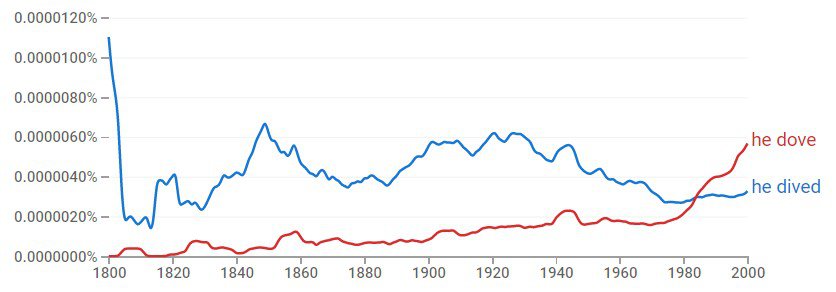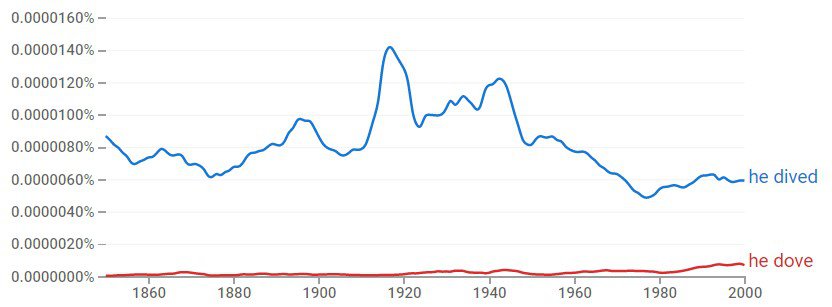Dived is the traditional past tense and past participle of the verb dive. But the newer dove, which probably came about by analogy with similar words like drove and wove, has been in the language approximately two centuries and is now standard in American and Canadian English. Outside North America, where dived still prevails by a large margin, some might consider dove wrong.
According to this ngram, which graphs occurrence of the phrases he dived and he dove in a large number of American books and periodicals published from 1850 to 2019, dove has recently overtaken dived in American writing:

The corresponding graph for British English is much different:

Examples
Writers from outside North America prefer the traditional dived by a large margin. Here are a few examples from recent newswriting:
Deborah dived in to save Grace and both were helped out by other visitors. [BBC News]
From a year earlier, the number of sales dived just over 40 per cent. [Sydney Morning Herald]
Mr Adams was flying the light aircraft which nose-dived into a field. [Telegraph]
While dived appears occasionally in American publications and slightly more often in Canadian writing, dove prevails. Most North American readers would have no problem with sentences like these:
She also got a good emotional moment, too, when she dove in for the hug. [Los Angeles Times]
In June 2008, John David Pearce of Fort Erie, Ont., dove into a swift current to save a woman from drowning. [Winnipeg Free Press]
He did his research—learning which guitars work best with which amps—and dove into rock history to confirm his finds. [Forbes]
And dove is not new. Here are a few historical examples showing that it was in use in American writing of the late 18th century:
A fiery oven is not hotter than that pile was getting, before we dove into the earth. [James Fenimore Cooper, The Wept of Wish-Ton-Wish (1871)]
It went surging up adjacent ridges—surmounted them and disappeared in the canons beyond—burst into view upon higher and farther ridges, presently—shed a grander illumination abroad, and dove again … [Mark Twain, Roughing It (1872)
When he disappeared, he dove under the boat and rose again on the opposite side. [Upton Sinclair, A Prisoner of Morro (1898)]

Comments are closed.